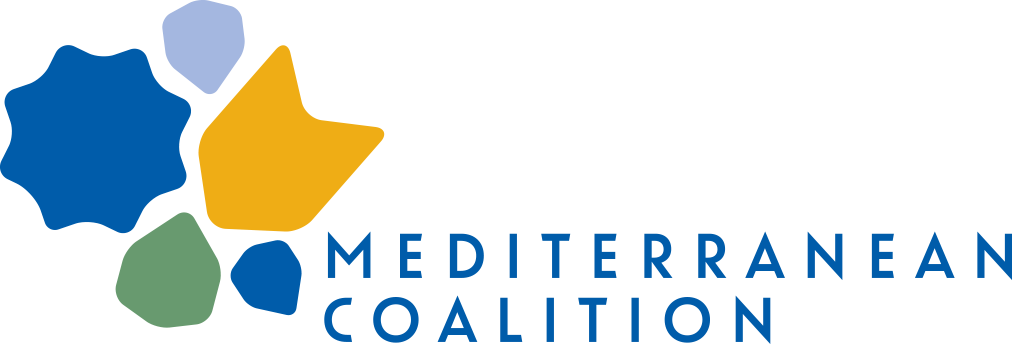Sharm el-Sheikh, Egypt – 6 to 18 November 2022
- The CIHEAM will organize three side events within the Mediterranean Pavilion to highlight pathways for more Sustainable and Inclusive Mediterranean Food Systems
- On Saturday November 12 at 3:00 p.m. (CET+1), with representatives of partner organizations, a discussion will take place to demonstrate the importance of implementing smarter and more inclusive solutions in the face of climate change in the water and food sectors, with particular emphasis on training, research and capacity building.
- On Saturday November 12 at 4:15 p.m. (CET+1), experts will gather to share innovations based on agro-ecological practices to face the challenges of climate change and water scarcity, improve incomes and consumption of agricultural households and reduce the environmental impacts
- On Monday November 14 at 5:30 p.m. (CET+1), internationally renowned experts will present concrete strategies for mitigating and adapting to climate change for an emblematic sector of the Mediterranean: that of grape and wine.
10 November 2022 (CIHEAM) – For the first time, the COP will host a space dedicated to the Mediterranean region which has been so far overlooked in the debates on climate change. The CIHEAM is a partner organization of the Mediterranean Pavilion, an initiative led by the Union for the Mediterranean, PRIMA Foundation, and the UNEPThanks to its long history of regional cooperation, teaching, research and political dialogue, the CIHEAM will bring the considerations of the agro-food sector hard hit by climate change which brings with it water shortages, heat waves, droughts and much more.
Bringing its diverse expertise to COP27, the CIHEAM will hold three side events touching upon climate change in the Mediterranean from a socioeconomic and technical perspective. As climate change represents a great threat to food and water security in the region, the CIHEAM will gather international experts to reflect on the feasibility of smart and/or agro-ecological solutions to achieve more sustainable and climate-resilient agriculture.
The issue of inclusivity will be equally considered given the fundamental role that stakeholders including youth and women can play in the development of rural areas. In addition to this, by looking at successful on-the-ground experiences like the SupMed project, it will be stressed that the early engagement of local actors and civil society is always necessary for any bottom-up initiative that wants to deliver actionable results.
A special focus will be made on the grape and wine sector, as it is a food industry that is fairly representative of the wider Mediterranean food system. Experts will present the most advanced approaches that are currently being implemented to mitigate and adapt to climate change in this sector.
On the occasion of COP27, the CIHEAM will reaffirm its role in Mediterranean agricultural cooperation, and its desire to mobilize and animate debates on the sustainability of agri-food systems with many partners among national and international public and private organizations: namely, the Arab Water Council, the Center for Environment and Development of the Arab Region and Europe, the Arab Organization for Agricultural Development, the Center for Mediterranean Integration, the French Facility for Global Environment, the International Organization of Vine and Wine, and the Center for Research on Ecology and Forestry Applications.
Background
Established in 1962, the International Center for Advanced Mediterranean Agronomic Studies (CIHEAM) is an intergovernmental organization composed of 13 Member States (Albania, Algeria, Egypt, France, Greece, Italy, Lebanon, Malta, Morocco, Portugal, Tunisia, Türkiye, and Spain).
The Centre brings together 4 Mediterranean Agricultural Institutes: CIHEAM Bari (Italy), CIHEAM Chania
(Greece), CIHEAM Montpellier (France), CIHEAM Zaragoza (Spain), and a General Secretariat, headquarter of the organization, based in Paris (France).
The CIHEAM has a long history of multilateral and regional cooperation and offers education and training,
research, technical assistance, and capacity building. It works with public administrations, universities and research centers, cooperation and development organizations, local authorities, civil society actors, and companies to meet the needs of Mediterranean populations and territories
On the occasion of its 60th Anniversary, the CIHEAM has decided to focus on four main issues: sustainability of food systems, sustainable management of coastal zone management and fisheries, empowerment and socio-economic inclusion of youth and women, and sustainable management of Mediterranean forests.
SupMed (2021-2025) is a project jointly organized by CIHEAM Montpellier and The FFEM (The French Facility for Global Environment) along with various public and private partners in Egypt and Lebanon. It aims at proposing and testing innovations-based agro-ecological practices to face the challenges of climate change and water scarcity, to improve the incomes and food consumption of farming households, and to reduce the environmental impacts of agricultural activities in the regions of Luxor (Egypt) and Bekaa (Lebanon).
Media Contact seghirate@ciheam.org
